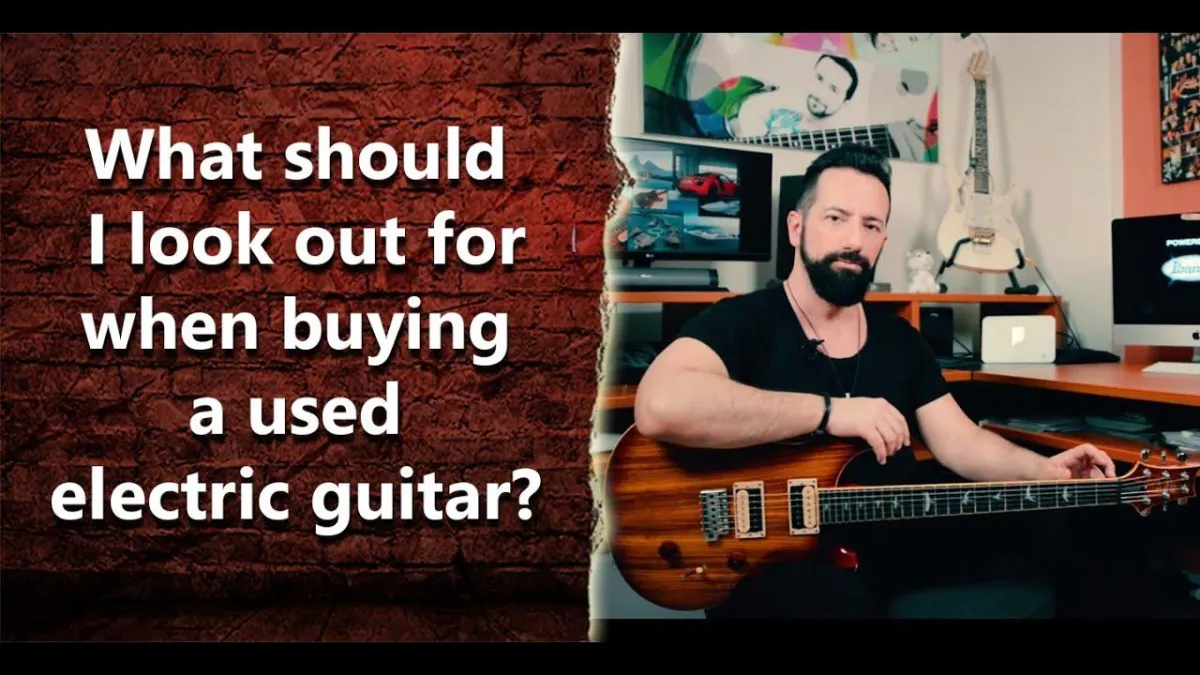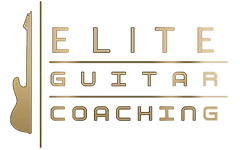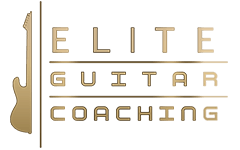Elite Guitar Coaching Academy Blog

What should I look out for when buying a used electric guitar?
Hello there, guitar slingers!
Let me start by saying that if you are a beginner, you should have your teacher help you when buying a used electric guitar. If you do not have a teacher, get a friend of yours who is much more experienced in guitar to help you. Do not get help from a friend who is playing for 3–4 or 6 months. Find someone who has played for several years and has owned a few instruments!
The most important thing to do is to take the guitar to a guitar tech for a check-up and an estimate. This is the biggest money hack and time-saver. He is going to be able to look up and down the guitar and check out the instrument and he will tell you what you need to know. If the price you are supposed to be paying is a good price or not. If the quality of the instrument is good. If the condition of the various parts is acceptable. There are not many things a good guitar tech cannot see at one glance.
Now, what should you look for when buying a used guitar?
Let us start by looking for rust on the different parts of the instrument. You should check at the tuners, the bridge, the pickup covers, and pretty much everything, except maybe the screws. The screws are usually very inexpensive to replace.
Check out for obvious cracks and dings. This does not mean the guitar is broken. It does not affect the sound and playability. Dings, really, do not affect the sound of the instrument overall, just cosmetically. If you do not have a problem by looking at them, you are going to be fine. Also, it really lowers the price. The guitar who is in pristine condition will be much higher priced than the one that has a couple of dings, here and there.
Let’s move on to pickups. At this part, you need to listen for any breaks in sound or any weird sounds coming from the pickups and electronics of the guitar. Most of the time this means the guitar is not shielded properly or the pickups are not of good quality. Of course, this does not happen every single time, but it is a strong indicator.
Moving on to a couple of things you should check out visually, let us move to the headstock. The point between the fretboard and the tuning machines area is a structurally weak area. If a guitar has been broken, it will usually break here. It is very rare that the guitar will break somewhere else. I always look at the headstock to make sure this has never been broken and there is no crack or something like that. Once again, a ding is fine, but we are talking about cracks that go through the wood. If this is the case, the value of the guitar becomes significantly less. It might really not affect the playing or even the sound, but its resale value will be much lower.
Next thing to check out is the neck. I do not expect the guitar to be perfectly set up. I just want to make sure the neck is not high on one part and lower on the other half etc. This might be several things like the fret is being unglued from the body. If the person who is selling the guitar is a guitar player, he will make sure the guitar is at least minimally set up before trying to sell it because this maximizes his chances of selling it.
The next step to consider is the frets. I would check the dents on the frets. Dents on the body of the guitar are fine and it does not make a difference. However, dents on the frets is a different story. It means the guitar has fallen on the fret on some occasions and then the string of the guitar has cut a groove inside the fret from falling on it. This, actually, can make a difference in the sound. This issue can kill the sustain of the guitar and the playability, overall. Try to avoid any dents on the frets, unless your guitar tech says it is not a big deal.
If the guitar you are considering buying is ok with most of the points above, you should be fine. Personally, I have bought over 100 guitars in my years as a guitar player, and I really had no real problems with any of them being of inferior quality than what I thought.
I hope this was helpful. You can watch the video below, where I explain this topic in more detail. If you’re interested in developing your guitar skills and reaching your music goals, please check the different Elite Guitar Coaching Academy packages and how you can get private coaching from me.

© Copyright - Elite Guitar Coaching Academy. All Rights Reserved - Privacy Policy - Earnings Disclaimer - Terms & Conditions
Earnings and income representations made by Elite Guitar Coaching Academy, eliteguitarcoaching.com, are aspirational statements only of your earnings potential. The success of Elite Guitar Coaching Academy testimonials and other examples used are exceptional, non-typical results and are not intended to be and are not a guarantee that you or others will achieve the same results. Individual results will always vary and yours will depend entirely on your individual capacity, work ethic, business skills and experience, level of motivation, diligence in sticking to Elite Guitar Coaching Academy's guidance and strategies, the economy, the normal and unforeseen risks of doing business, and other factors.
Elite Guitar Coaching Academy, and eliteguitarcoaching.com individually, are not responsible for your actions. You are solely responsible for your own moves and decisions and the evaluation and use of our products and services should be based on your own due diligence. You agree that Elite Guitar Coaching Academy is not liable to you in any way for your results in using our products and services. See our Terms & Conditions for our full disclaimer of liability and other restrictions.
Do you have questions? Are you wondering if this will work for you? Email us at info@mg.eliteguitarcoaching.com
We will be happy to discuss your goals and how our courses, coaching or consulting services may help you. Thank you.

